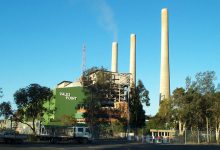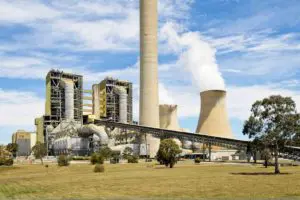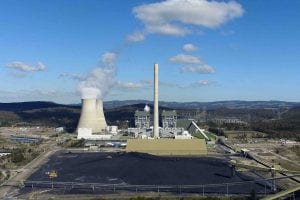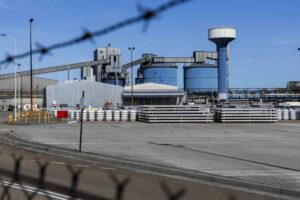A powerful committee tasked with maintaining the integrity of the federal government’s emissions reduction funding has rejected a proposal to open up a multi-billion dollar fund to upgrade coal plants, in a significant slap down of the coal lobby.
Last year, the Morrison government asked the independent Emissions Reduction Assurance Committee (ERAC) to consider a proposal to direct part of the $2 billion Climate Solutions Fund towards supporting upgrades and repairs across Australia’s ailing fleet of coal fired generators.
But in delivering its final report to the government, the ERAC said that it would be too difficult to account for situations where such upgrades simply extend the operational life of a coal plant and led to overall increases in Australia’s emissions.
There were fears after a strong lobbying effort from the fossil fuel industry that the review would be used to justify opening up funding earmarked for emissions reduction activities to be redirected towards extending the operational life of coal fired generators.
In particular, there had been a push for funds to be directed to the Vales Point power station in New South Wales, which is understood to have already secured more than $11 million in taxpayer funds to pay for repairs from the Morrison government under its controversial Underwriting New Generation Investments (UNGI) program.
The owner of the Vales Point power station, Trevor St Baker, had lobbied the Morrison government for additional funds under the Climate Solutions Fund, to pay for a replacement of turbines at the ageing coal generator.
St Baker, along with his business partners, purchased the 1,320MW Vales Point power station from the NSW government for just $1 million in 2015. The plant has subsequently been valued at more than $730 million, and has sought to draw upon tax payer funds to keep the 42-year old power station running.
While former federal environment minister Melissa Price was unable to unilaterally direct the climate funds to the power station, she instigated a review of the fund to be completed by the Emissions Reduction Assurance Committee, partly to explore the potential of opening up the fund to coal generator upgrades.
Currently, some facilities are able to receive recognition of emissions reductions achieved through upgrades and replacement to critical plant equipment, provided it reduces the overall emissions of the facility.
But in its final report, the Emissions Reduction Assurance Committee rejected the calls to expand the fund to coal generator upgrades saying it could not guarantee that such upgrades would not ultimately lead to higher greenhouse gas emissions in the long-term.
The committee recognised the difficulties in providing government funding to any fossil fuel plant, noting that while upgrades may improve the efficiency of a plant, they may also ultimately extend the operational life of a plant, or extend the capacity of the plant, which would lead to an overall increase in emissions.
“The Committee concluded that the proposal was not sufficient to address the extension risks associated with coal-fired generator upgrades,” the committee’s report says.
“In order to substantiate a statement of non-extension, sophisticated analysis that goes beyond technical aspects of the projects and covers a long or potentially undefined timeframe would be required.”
“Furthermore, this analysis would have to be conducted and assessed on the individual project level. It would be difficult to set prescriptive and adequate requirements at the method level to ensure the integrity of the proposed approach.
The committee also rejected a call for carbon, capture and storage projects to be eligible for funding under the Climate Solutions Fund.
The committee decided to take a more cautious approach, concluding that the detailed analysis required to account for any coal plant life extension would be overly burdensome and uncertain, and therefore opted against extending the ‘facilities method’ under the Emissions Reduction Fund to power stations.
This outcome was welcomed by think tank The Australia Institute, which said the committee’s recommendation to leave coal fired power stations out of the Emissions Reduction Fund was a win for efforts to reduce Australia’s greenhouse gas emissions.
“Lobbying by coal executives has put much pressure on the Government to allow greater access to climate funding for the coal industry. Fortunately, the independent review committee has made the right choice in maintaining the legal checks and balances that ensure the Climate Solutions Fund is not rorted,” The Australia Institute’s climate and energy program director Richie Merzian said.
“Power stations like Vales Point pump seven million tonnes of greenhouse gases into the atmosphere each year, and every year they operate past their retirement age, is another year fuelling climate change and its devastating impacts such as the recent fires.”
The Australia Institute welcomed the findings of the review, saying that the outcomes were consistent with maintaining strong standards for the use of government funding for emissions reductions.
“Integrity is the real winner in this review, which agreed to maintain the strong standards regarding how the Government’s Climate Solutions Fund supports emissions reductions in high polluting facilities,” Merzian added.
“The work of the ERAC demonstrates the value of truly independent entities, by serving in the interests of the public on climate change, not the interests of coal executives looking for further handouts.”
“The ERAC also resisted industry calls to water down the funding method to support carbon capture and storage, which has been a major failure despite receiving $1.3 billion in government funding to date.”
A separate review of the fund, and the Morrison government’s emissions reduction policies has also been completed by an ‘expert panel’ led by former Origin Energy CEO Grant King. However, the government has not released the findings of that review.








